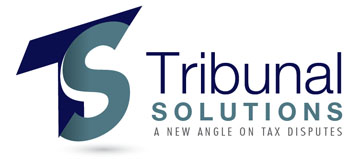A short quiz for accountants and tax advisors on the workings of the Tax Tribunal
STICK TO YOUR KNITTING
A quick quiz
- Do you know the difference between appeals against VAT assessments and income tax assessments?
- Who has the initial burden of proof in relation to:
- A normal assessment to tax;
- A penalty assessment;
- A discovery assessment.
- Given that inability to pay and reliance on 3rd parties are expressly ruled out as excuses against (for example) late payment penalties, can these ever be brought in as part of a reasonable excuse defence?
- What regard do HMRC have to have regarding the effect on a business of withdrawal of Gross Payment Status under the Construction Industry Scheme?
- What would your potential lines of defence be to the imposition of penalties for deliberately filing an incorrect return (depending of course on the circumstances of each case)?
Answers (simplified)
- Appeals against VAT assessments are made direct to the Tribunal. Appeals in Income Tax matters are made to HMRC.
- The taxpayer;
- HMRC;
- Initially HMRC regarding whether a discovery has been validly made. Then the taxpayer has the onus of disproving the quantum of the assessment.
- If the reason for lack of funds is because of some unexpected/uncontrollable event such as a sudden large bad debt, this may be accepted. It would be necessary to show monthly cashflows to indicate the effect of the sudden event. If the taxpayer can show they took reasonable care to avoid incorrect submissions by an agent, this would be a defence.
- See the recent case of JP Whitter (Waterwell Engineers) Ltd in the court of Appeal [2016] EWCA Civ 1160.
- The penalty notice is invalid e.g. made out of time, no proof of receipt by taxpayer, contains substantially incorrect or deficient details, was not made by duly authorized officer;
- The taxpayer has merely been careless (or not even careless at all) and the error was not deliberate;
- Reasonable excuse;
- No “potential lost revenue”;
- Claim for special circumstances;
- Claim that the penalty should be suspended;
- Claim that the penalty should be reduced for disclosure;
- Proportionality (including Human Rights arguments)
- Reliance on agent (see above).
Anyone who has got five out of five is welcome to take up a post with Tribunal Solutions. I suspect more readers will have managed a rather lower score. The purpose of the quiz is merely to stress that we all need to operate within our zone of expertise. I personally know very little about offshore trusts for example (other than that one needs to steer well clear) and most accountants dealing with normal client servicing will rarely if ever deal with appeals at Tribunal level.
There is always a temptation to help out one’s client (particularly if one feels that the problem is in some way attributable to oneself or could with hindsight have been dealt with differently) but one needs to bear a few things in mind before dipping into Tribunal advocacy:
- HMRC only take cases they think they have a good chance of winning;
- HMRC can take unlimited time to prepare documentation, statements of case etc, sometimes with no relation to the amounts of money involved. The average practitioner does not have this luxury and has to “box clever” when preparing a case;
- There may be PI issues if an accountant has not included Tribunal representation as part of their activities on application forms.
- They may fall foul of the Professional Standards of their relevant regulatory body if they deal with matters beyond their expertise.
- A poor performance may trigger a complaint by the client to these regulatory bodies (and of course the loss of the client coupled with non-payment of fees).
For instance, the ICAEW guidance requires the member “To maintain ….knowledge and skill at the level required to ensure that a client or employer receives competent professional advice”. It also stresses that services rendered must correspond with the engagement Letter and refers in this respect to the “Mehjoo” case [2014] EWCA Civ 358 which is compulsory reading for any accountant tempted to stray beyond their core expertise. Although the accountants got off in the Court of Appeal, the High court had previously found negligence. It was a close shave.
There is no shame in admitting that specialist advice should be sought and most clients will appreciate the honesty. The accountant may still have a significant role to play including preparation of source documentation, provision of relevant background information and maybe acting as a witness. Those who read Tribunal case reports on a regular basis will frequently find references to deficiencies in quality of representation, sometimes scathingly so. You do not want to be immortalized in print in this way.
So consult the experts and rest easy. As long as you can be satisfied that the advocate will do a good job and charge a sensible fee, that sounds like a win-win. See also my earlier article Tax Tribunal Tips”.
